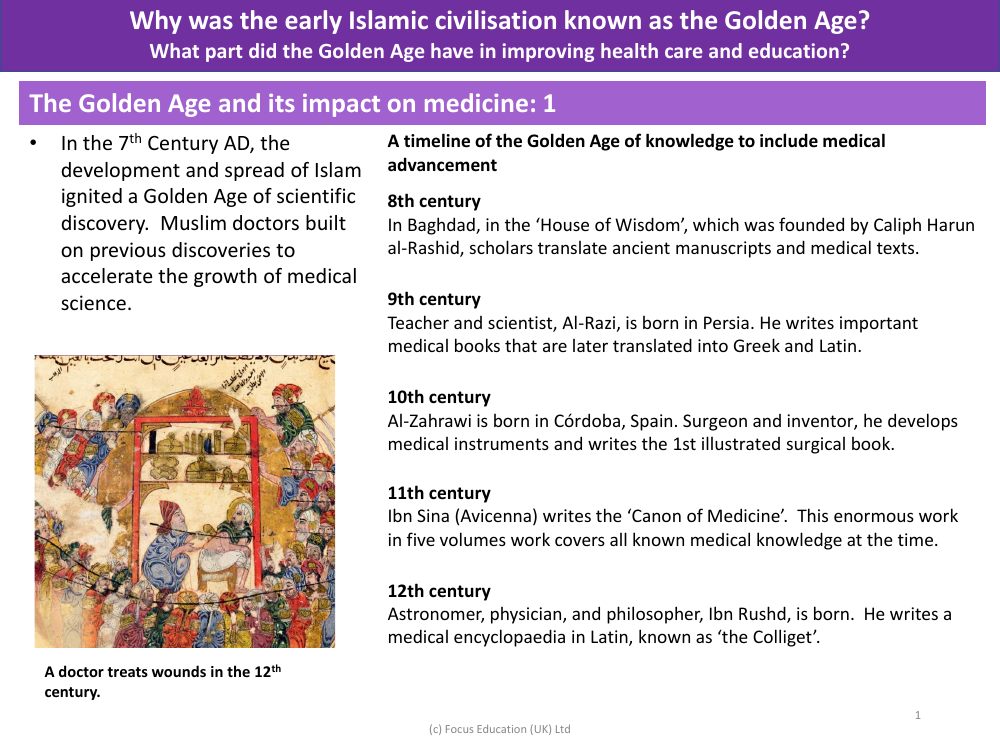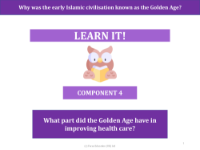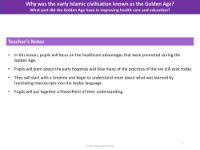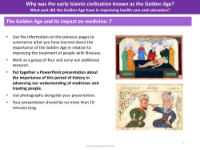The Golden Age and its impact on medicine - Info Pack - Year 6

History Resource Description
The term 'Golden Age' in the context of early Islamic civilisation refers to a period of remarkable advancements in various fields, notably in medicine. With the rise of Islam in the 7th century AD, there was a surge in scientific discovery, greatly impacting medical science. Muslim doctors made significant strides by building upon earlier findings, leading to rapid progress. This era saw the establishment of the 'House of Wisdom' in Baghdad during the 8th century, where scholars translated ancient manuscripts, including medical texts. Subsequent centuries were marked by the birth of influential figures such as Al-Razi and Al-Zahrawi, who authored critical medical books and surgical guides. By the 11th century, Ibn Sina's 'Canon of Medicine' encapsulated the entirety of medical knowledge of the time, and in the 12th century, Ibn Rushd contributed a medical encyclopaedia that would become highly influential.
During this Golden Age, the world witnessed the founding of some of the earliest known hospitals, like the 13th-century Divrigi Hospital in modern-day Turkey. Medical practitioners of the time employed a variety of treatments, including those derived from animals. Educational advancements paralleled these medical innovations, with the establishment of Muslim schools of medicine and madrassas, which were often linked to mosques and hospitals. These institutions provided practical learning experiences similar to modern medical training. In contrast to European beliefs at the time, which saw illness as divine punishment, the Islamic view regarded disease as a challenge to be overcome through knowledge and treatment. This perspective led to the establishment of medical centres that were the precursors to today's hospitals, featuring wards, outpatient clinics, and pharmacies. Such centres also served as training grounds for aspiring doctors, shaping the future of healthcare and education.



